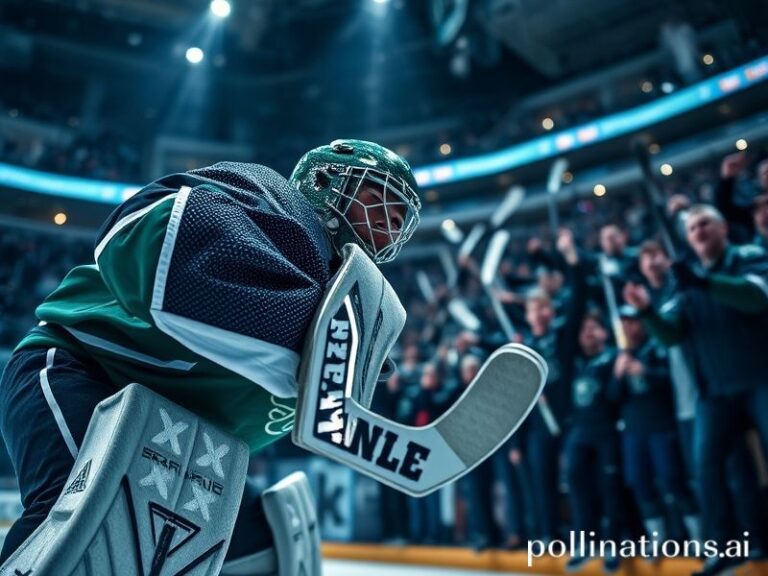Rasmus Højlund: Denmark’s €75 Million Miracle Cure for Global Existential Crisis
**The Danish Delight: How Rasmus Højlund Became Football’s Latest Answer to Existential Dread**
In a world where billionaires play space tourism while the planet burns and artificial intelligence threatens to make journalists obsolete (hello, irony), humanity has found its newest distraction: a 20-year-old Danish striker who runs like he’s being chased by Denmark’s collective tax bill. Rasmus Højlund isn’t just Manchester United’s €75 million gamble—he’s a global Rorschach test revealing our desperate need for heroes who can outrun both defenders and the crushing weight of modern existence.
From the frostbitten streets of Copenhagen to the fever dreams of Old Trafford, Højlund’s meteoric rise represents something far more significant than mere sporting prowess. In an era where European nations squabble over everything from energy pipelines to whose turn it is to host the next economic crisis, this Nordic prodigy has become an unlikely ambassador for Denmark’s soft power—because apparently, exporting bacon and existential philosophy wasn’t quite cutting it anymore.
The international implications are staggering. While NATO allies bicker over defense spending, Højlund’s transfer fee could have funded a small military. Instead, it’s been invested in a young man whose primary skill involves kicking a leather sphere past highly-paid professionals and into a net—an activity that somehow generates more global passion than climate conferences or peace negotiations. The irony isn’t lost on anyone except, perhaps, those still believing football is “just a game.”
In developing nations where Manchester United’s fanbase stretches from Lagos to Lahore, Højlund’s saga offers a peculiar form of hope: the fantasy that talent, not connections or corruption, can still catapult a working-class kid into stratospheric wealth. It’s a narrative as comforting as it is misleading, but in countries where economic mobility resembles a particularly cruel game of Snakes and Ladders, any dream will do. The Danish striker has unwittingly become a poster boy for meritocracy—never mind that for every Højlund, there are ten thousand equally gifted kids whose biggest career move involves migrating from rural poverty to urban poverty.
The broader significance extends into the murky waters of international finance. Højlund’s valuation—roughly equivalent to the GDP of a small Pacific nation—exposes the obscene mathematics of modern football, where television rights and betting syndicates have transformed sport into a global casino. While the World Bank frets about developing economies, Premier League clubs casually toss around sums that could vaccinate entire countries against preventable diseases. But hey, at least the highlight reels are spectacular.
Meanwhile, European Union bureaucrats, those masters of missing the point, have been too busy regulating banana curvature to notice that football has become the continent’s most effective tool of cultural imperialism. Højlund’s face will soon adorn billboards from Bangkok to Bogotá, selling everything from sports drinks to the increasingly elusive dream that we’re all just one lucky break away from glory.
As climate refugees flee rising seas and democracies teeter like drunk debutantes, humanity’s collective gaze turns to a blonde Viking-in-training whose ability to score goals has been elevated to messianic significance. Perhaps that’s the darkest joke of all: in our desperation for meaning, we’ve convinced ourselves that a Danish teenager’s right foot might somehow save us from ourselves.
The beautiful game, indeed.







